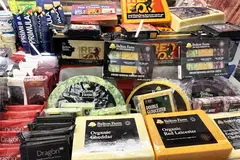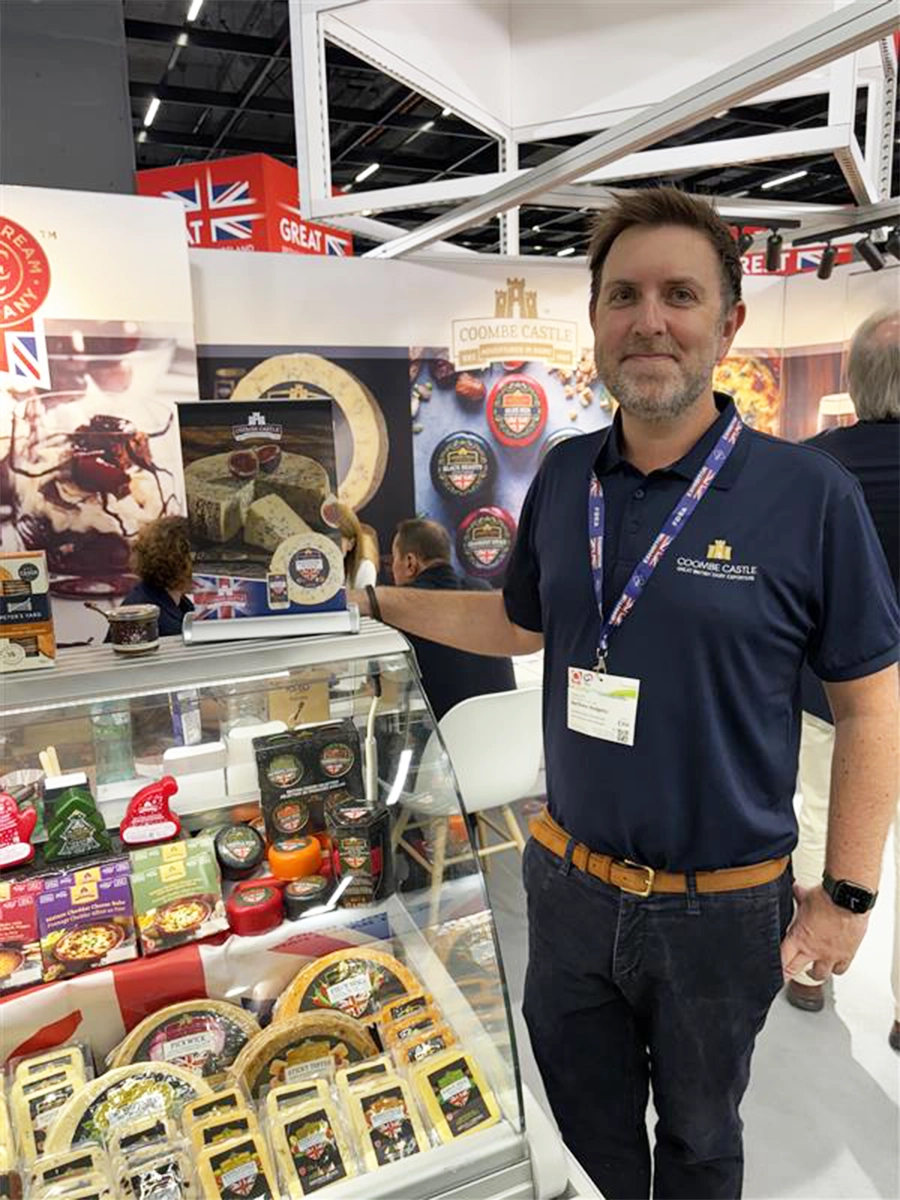
- Industry news
Industry news
- Category news
Category news
- Reports
- Key trends
- Multimedia
- Journal
- Events
- Suppliers
- Home
- Industry news
Industry news
- Category news
Category news
- Reports
- Key trends
- Multimedia
- Events
- Suppliers
Anuga 2025 live: British cheese exporter tackles Trump tariff uncertainty
Key takeaways
- UK exporters like Coombe Castle face steep new tariffs, making their products less competitive than US domestic and EU-sourced cheeses.
- Heightened scrutiny of small shipments — driven by concerns over under-declaration — is leading to delays, inspections, and increased costs.
- While exporters and retailers have been absorbing tariff-related costs to protect US consumers, this strategy is not sustainable in the long term.

The Trump Administration’s crackdown on tariffs is causing significant difficulties for firms exporting from the UK to the US, as they face close scrutiny from American customs and rising tariff costs, making their food products less competitive.
One such company, Coombe Castle — the second largest dairy exporter into the US from the UK — speaks with Food Ingredients First live from the show floor of Anuga 2025 in Cologne, Germany, about the current challenges it faces due to President Trump’s tariffs and the weakened US dollar.
The company exports British and Irish dairy products, including cheeses and creams, to the US and other international markets.
Coombe Castle international sales manager Matthew Hodgetts tells us the company is working with retailers to absorb some costs, but long-term sustainability is uncertain.
One crucial point is that US customs is suspicious of shipments labeled as samples or with low values, suspecting they are under-declared.
Less competitive cheese
Under the recently introduced tariff regime, British Cheddar has a 12% duty and an additional 10% tariff, now making it less competitive against domestic US Cheddar and European blue cheeses.
The EU’s 15% flat tariff deal is more favorable, but obviously doesn’t apply to UK to US exports. However, the company’s Irish cheddar falls under the EU tariff system.
“While it seemed very positive that the UK government negotiated something very quickly for us, it removed uncertainty. The European deal is actually far better and much more competitive, so we would struggle now against European blue cheeses and products like that,” he says.
 Coombe Castle international sales manager Matthew Hodgetts at Anuga 2025.“Where possible, we’ve tried to work with our key retailers and see if there is a way where we can absorb part of it, and the retailer absorbs part, and then also the importer does try to stop passing so much of it on to the consumer. But, in reality, these [tariffs] feel like they are there to stay, at least for the current administration.”
Coombe Castle international sales manager Matthew Hodgetts at Anuga 2025.“Where possible, we’ve tried to work with our key retailers and see if there is a way where we can absorb part of it, and the retailer absorbs part, and then also the importer does try to stop passing so much of it on to the consumer. But, in reality, these [tariffs] feel like they are there to stay, at least for the current administration.”
“In the short term, there are a lot of producers like us who have been absorbing things, but it’s not sustainable. Most US consumers have probably not seen enormous increases yet. At some point, the suppliers are going to have to pass 100% of this on, and so it’s just going to lead to more food inflation in the US.”
US Customs distrusting smaller shipments
Hodgetts explains that the most recent development, which has been emerging in the last week, is that US Customs has started cracking down on small shipments, like sample shipments, into the US.
“For example, when people have sent a couple of packs of cheese as a sample for a retailer to try a new cheese, it costs below US$800. US Customs is now heavily inspecting it and opening it up because many people have been trying to get stuff into the US and under-declaring its value, so they don’t have to pay as much tariff on it.”
Food products can then get held up in customs, which is causing further problems.
“The tariff situation has also weakened the dollar, and we sell to the US in US dollars, so that’s negatively impacted our margin, because we’ll push prices up because the US dollar has weakened as a result, and we’ve got to obviously convert that back to Sterling at some point,” says Hodgetts.
“There are lots of challenges, and we’re battling through them. Hopefully it’s fairly short term, maybe a couple of years, so we have to ride through.”
Coombe Castle also works with British cheeses that are particularly appealing in the US and come with a premium price. Products include a Protected Designation of Origin status Cheddar from a specific English region, Wensleydale cheese, and territorial cheeses like Red Leicester and Double Gloucester.
These cheeses are less affected by price competition and more brand-focused.
With additional reporting by Missy Green, live at Anuga 2025 in Cologne, Germany











